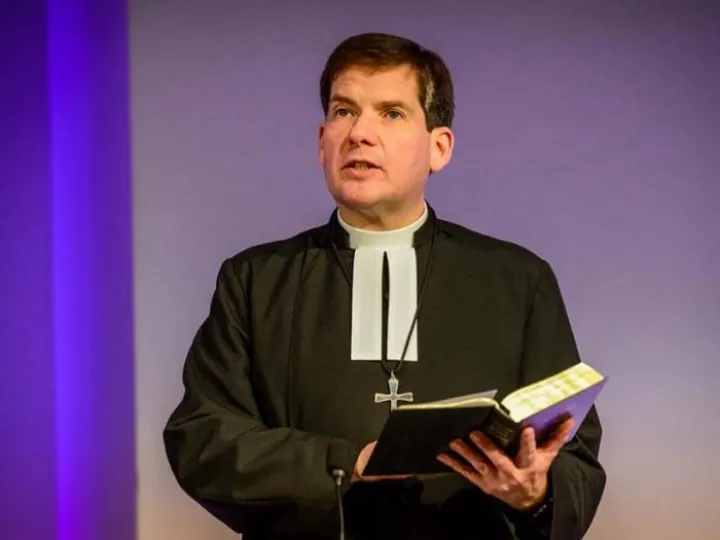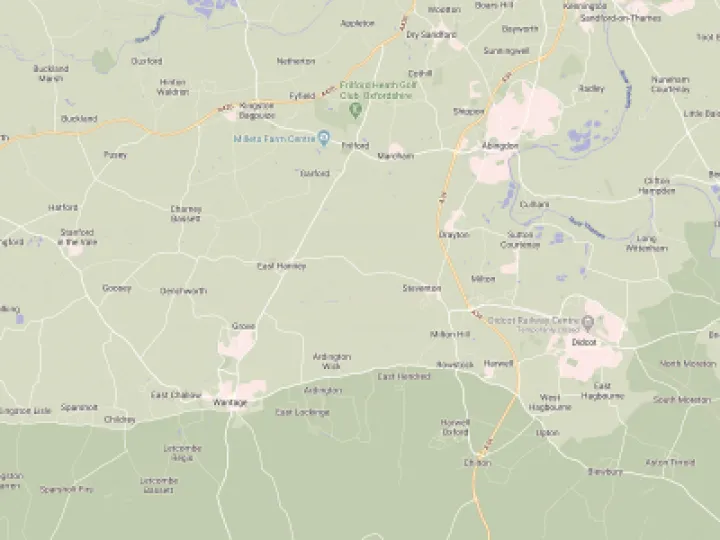The state of the work of God
Reflections on the Statistics for Mission triennial report by the Secretary of the Conference
These reflections were offered by the Revd Canon Gareth J Powell after the 2017 Methodist Conference had received the report, and as an introduction to discussions that were held by District groups about the report and its implications for the state of the work of God in the Connexion.
"Do not talk much; neither long at a time. Few can converse properly for above an hour. Keep at the utmost distance from pious chit-chat, from religious gossiping" -- John Wesley.
We are addressing this report because we have staked our lives on the fact that God was in Christ, making our life's work to help people to experience the world from a new perspective.
We are not addressing this report because we enjoy counting.
We are addressing the state of the work of God (to use a very Methodist phrase) because God was in Christ reconciling himself to the world (to use a very Pauline phrase).
We are not addressing this report because we enjoy talking about doing things.
This is a report about a disparate body of God's people who have their common identity in Christ, and therefore redefine everything they do in light of the cross, in light of the resurrection, in light of Pentecost, in light of the Ascension.
It paints a picture not of what W E Sangster might have called "a heaping together of unrelated trifles" but rather a picture of how, to varying degrees, the Methodist people are being faithful in the call to proclaim the gospel. It is about us -- what we are and what we are not doing faithfully.
The Standing Orders tell me that as the Secretary I "shall play a principal part in the oversight and leadership of the Church, and in particular shall be responsible for ensuring that the Church has in place structures and processes that enable the Conference, other connexional bodies, Districts, Circuits, and Local Churches, in accordance with their respective natures, purposes, functions and responsibilities and acting collaboratively whenever appropriate:
(i) to develop the Church's vision of unity, mission, evangelism and worship;
(ii) to develop the strategic management of the Church's affairs;
(iii) to give effect to the vision and strategy of the Church as so developed."
I need a bit of help in doing that so that is why we are exploring this report in this way. And it is in light of my responsibilities that I want to make a few remarks about our duty to be responsive to God.
We are about the mission of God and our task is to proclaim the gospel.
We must not become so consumed by the numbers that we fail to be a community fashioned by prevenient grace; so obsessed by the Methodist accountancy of it all that we fail to be jolted out of complacency by the activity of the Holy Spirit; so concerned for order that we become ordinary when in fact Methodists order themselves to be channels of God's grace, knowing their place in the wider body of Christ.
John Wesley was nothing if not adaptable -- not a trait often associated with Methodists, but that has more to do with a misreading of history. Wesley was prepared to innovate and experiment in the service of the gospel.
A former President of this Conference, John Newton, points out, "This is the true Wesleyan tradition, rather than slavish attempts to preserve the eighteenth century pattern given on the Mount."
It is such an openness to the prompting of God that enables and allows new patterns of ministry to develop.
We must, with some urgency, address;
1. Vocational development and Christian formation -- our patterns of formation and training need to be of high quality so that we are indeed equipped for the tasks of engaging with a complex world. The Strategy and Resources Committee has a major task before it in evaluating the Review of Training and ensuring that the Council and the Conference has before it some concrete, sustainable and robust proposals that see us developing ever more theologically grounded patterns for vocational discernment and formation.
2. Mission and evangelism -- how we develop a range of ways by which we proclaim God's love which in turn demands that we treat God's good creation with holy reverence. The Central Finance Board, Action for Children, MHA, Methodist Schools, are all part of this how to live in the light of Christ. Our theological breadth should enable us to have a range of interpretations of how to proclaim the gospel some of them will include words! I sense the Connexion needs to be better at sharing examples and it needs the Connexional Team to be more able to offer ideas and support for the task.
3. Sharing as if we are a Connexion -- where trusteeship should reside, how we develop local, circuit and district priorities, and how we share our financial and physical resources: I keep being told that this work needs to be done and the agenda of the Council and the Conference is full of attempts but not much consensus on the how. I think we must address it again and be bold -- but I need you to tell me if that is what you want me to do.
4. Be disciplined about what the Conference does -- we should not seek to be a group of 306 Conference aficionados (we can get very carried away about our own process and structure) but agitators for the gospel.
At the heart of this report, there is a challenge. Not the statistics, but the nature of our being that we must take seriously our responsibility for being an evangelistic community of love which leads people to Christ.
God in Christ redefines love as a profound giving of attention to another person only in that regard is this report about numbers. Only in that regard is our work about counting.
Ultimately our work is about God.
The Revd Canon Gareth J Powell, Secretary of the Conference


